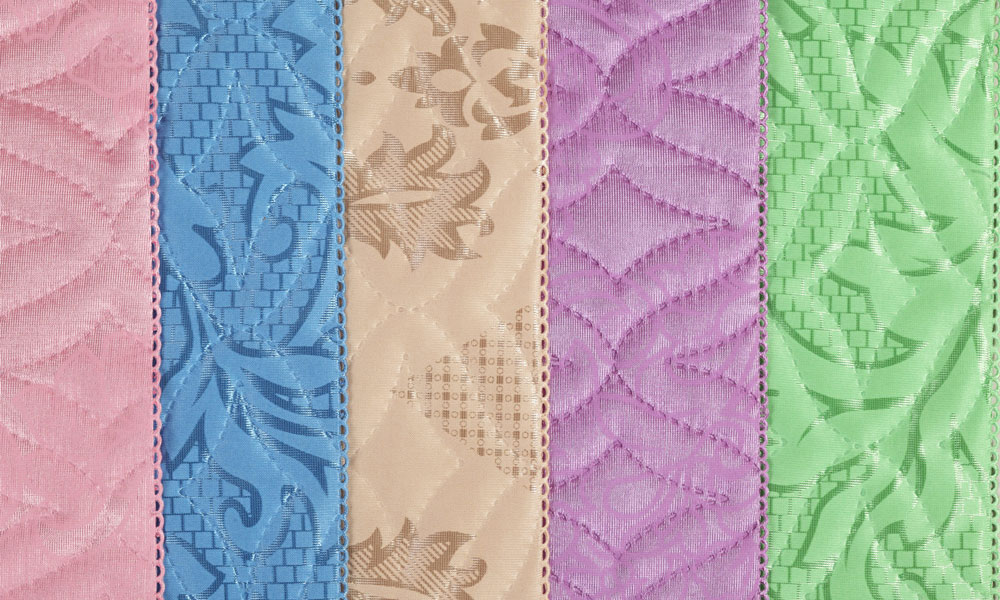If we take a look at the care tags of our clothing, most of them will surely contain polyester. This material is so versatile that nowadays it is used not only in clothing-making but also in creating home textile and interior designs!
So what is this polyester fabric and what makes it stand out?
Let’s figure this out.
What Is It?
Polyester is in fact a general term used for any material made of polyester yarn or fabric.
By its nature, this material is a man-made artificial textile that is produced by blending ethylene glycol and terephthalic acid. To speak simply, this material is in a certain way a sort of plastic. And owners often note that it really looks a bit unnatural.
Unlike some natural materials, artificial textile has specific characteristics that make it so popular.
- durability
- high level of resistance
- this fabric can stand almost any deformation and restore its shape
- it is strong yet not heavy at all
- artificial textile is easily dyed
- such clothing retains its shape perfectly
- Super easy maintenance
- since the material dries fast, it is popular for various outdoor activities
Can You Shrink Polyester?
And probably the main benefit of this material is the shrink-resistance!
Polyester is not something that can be easily shriveled under usual conditions. It will always restore its initial shape and size so there is no need to worry. However, if the item needs to be made smaller, several ways exist of how to shrink polyester. Only ensure to do it correctly to not ruin the material!
The only issue with polyester is that some people who have sensitive skin often complain that they have some sort of allergy reaction when wearing items made of this material – all because of the chemicals used for producing it.

What If Feels Like to Wear It
If anyone put on apparel made of polyester back then when the material only appeared on the market, that person would be unpleasantly surprised.
Yet very durable and universal, and even quite nice looking, this artificial textile looked somewhat cheap. But the worse would be how it felt on the skin. People mentioned that the original material was almost like soft plastic!
Pure polyester is usually described as quite harsh and even scratchy material rather irritating to the skin, especially sensitive. Even adding natural fibers doesn’t make this feeling better, however, modern polyester is somewhat better to the touch than its “ancestor”.
When Did Polyester First Appear?
This material is rather young. Polyester was invented in 1941 by chemists from Britain, and already in the 1970s, garments made of it became widely popular because of the way they were introduced to the public and advertised.
It was claimed back then that polyester is stronger than steel and it can be worn for two months in a row without even ironing it. A true find for a busy (well, or lazy) customer!
However, quite many people noted that due to its slightly plastic look, this material looks cheap and unpresentable.
Well, everything has its price, right?
How We Make Use Of It Today
As we already told, polyester is a multipurpose material. Its silky and smooth surface makes it perfect for garments, especially due to the ability to be modified simply. Moreover, its sensitivity to heat allows to laser-cut patterns on the fabric.
Resistance to stains is another benefit of polyester as a material for clothing.
But do we use it somewhere else? Of course, we do!
- Sportswear
- Fleece
- Coats
- Bedding
- Footwear
- Filling for the comforters
- Upholstery
- Textiles
- Luggage and bags
This material has plenty of areas of use. The only problem that makes it somewhat worse than natural fibers is the tendency to create electricity – so you might give people static shock! Besides, it often ruins the nice hairstyle when putting on and taking off polyester apparel.
Is There Anything Wrong With It?
Not everyone enjoys wearing artificial fabrics, and we can understand those people! Natural fibers are breathable, pleasant to the skin, and hypoallergenic.
In comparison with those, synthetic polyester does have certain issues.

- It doesn’t breathe well. And if the sweat stays captured on our skin, it can be a good surrounding for bacteria or fungal infections to grow.
- People with sensitive skin can feel a certain reaction to 100% polyester that may appear as skin allergy.
- The pure material is very flammable.
So, as you can see, this material has its pros and cons. And it’s your choice whether to prefer synthetic garments or pay more (and spend more time on maintenance) and get natural fabrics that will serve you the same long, or even longer.
[wp-faq-schema title=”Frequently Asked Questions”]

Do polyester suits look cheap? Is it worth buying them?
Perhaps, you should look for another material. Polyester look a bit of plastic if you know what I mean.
Is 100% polyester breathable? Is it ok for a sportswear?
I’d not recommend it. It breathes but quite poorely. Polycotton will be much better!
I need to refresh my furnishing covers and I’m thinking of a cheap material. Is polyester fabric cheap to buy?
Yes, polyester is a man-made material produced in labs, so its price is rather low and affordable.
I’m going to buy a polyester t-shirt. Should you size up in polyester? Does anyone know?
No, sizing up is not needed, this material runs true to size since it doesn’t shrink.
Is 100% polyester stretchy? Will it be fine for an active wear?
Yes, this material is stretchy but it will snap back so consider that.
Is polyester cancerous? I heard it is better to avoid it because of the health issues it causes!
Hi! I’m not a scientist, but I did hear that it may cause cancer. I guess, it was told about some low-quality kinds of fabric.
Is it comfortable to wear polyester fabric in summer? I have never used polyester clothes often before, but after I learned that this material is easy to maintain I began to doubt.
I’d not recommend you wear it in summer! The fabric is easy to maintain, that’s true, but you will be sweating like crazy in a polyester dress on a hot day! Besides, it will keep the stains of sweat which is not quite nice to see on a girl! So no, this is not the best option for the summer season.
Does polyester fabric keep you cool? I’m choosing between it and cotton – which one would you advise?
I’d say cotton is a better option. It keeps the body temperature better balanced in comparison to polyester which is moisture-wicking. That means that a polyester garment will make you sweat more.
And yes, cotton clothes keep you cool in summer better than synthetic fabrics.
Hi everyone! I need your help. If there’s anyone who wears polyester regularly, could you please answer my question? Is polyester too hot for summer?
I have quite many polyester items in my wardrobe. I’d say it’s not the best solution for the summer season. The fabric is comfy in terms of wrinkle-resistance, but it’s moisture-wicking which means it is less than ideal for being worn in summer.
How many types of polyester fabric exist? Are all of them basically the same material or not?
I’m not sure, to be honest. I heard that there is plant-based polyester and ethylene polyester. But there must be one more type which I don’t remember the name of.